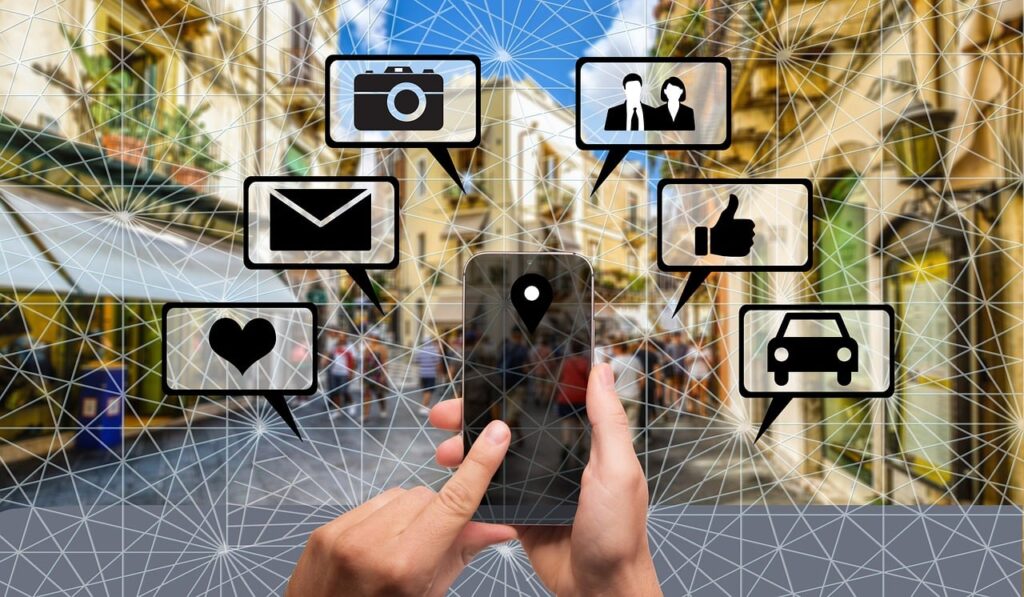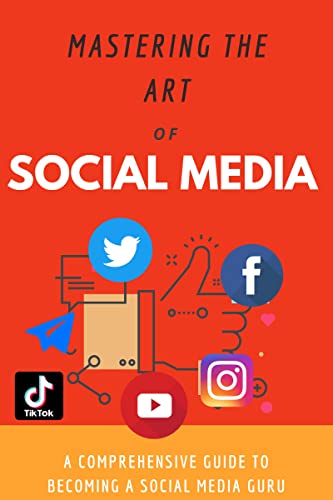In today’s digital age, social media marketing has become essential for businesses to connect with their target audience and promote their products or services. With the power of platforms like Facebook, Instagram, and Twitter, companies have endless opportunities to engage customers, build brand awareness, and drive sales. By creating compelling content, running targeted ads, and fostering meaningful interactions, social media marketing allows businesses to reach a wider audience, humanize their brand, and establish a genuine connection with their customers. This article will explore an example of social media marketing and its effectiveness in achieving business goals.

Influencer Marketing
One powerful strategy for social media marketing is collaborating with popular social media influencers. These influencers have a large and engaged audience, making them the perfect partners to promote your brand and products. By working with influencers, you can tap into their credibility and influence to reach a wider audience and increase brand awareness.
Sponsored content is another effective way to leverage influencers in your social media marketing efforts. You can partner with influencers to create content that highlights your products or services naturally and authentically. This form of advertising blends seamlessly with the influencer’s content, ensuring that it resonates with their audience and drives engagement and conversions.
Product reviews and endorsements from influential social media personalities can also greatly impact your brand’s reputation and sales. When influencers share their positive experiences with your products or services, their followers are more likely to trust and consider your brand. These reviews and endorsements act as valuable social proof, helping to build credibility and drive customer loyalty.
User-Generated Content Social Media Marketing
Encouraging customers to share their experiences with your brand is an excellent way to harness the power of user-generated content. You can create a sense of community and trust around your brand by providing a platform for your customers to share their stories, reviews, and testimonials. User-generated content also serves as authentic social proof, influencing other potential customers to choose your products or services.
Running social media contests and campaigns is another effective way to encourage user-generated content. By offering incentives or prizes in exchange for user-generated content, you can motivate your followers to engage with your brand and share their experiences. This increases brand exposure and generates valuable content you can use in your marketing efforts.
Sharing customer testimonials and reviews on social media platforms is another effective way to leverage user-generated content. You can build trust and credibility with existing and potential customers by highlighting positive feedback from satisfied customers. This social proof demonstrates the value and quality of your products or services, helping to drive conversions and customer loyalty.
Social Media Advertising
Creating targeted advertisements on platforms like Facebook and Instagram is essential to any successful social media marketing strategy. These platforms offer powerful targeting options that allow you to reach specific demographics, interests, and behaviors. By tailoring your ads to the right audience, you can maximize your return on investment and drive meaningful results.
Boosting posts is another effective way to reach a wider audience and increase your brand’s visibility. By allocating a budget to boost your posts, you can prioritize their visibility in users’ feeds, ensuring that more people see and engage with your content. This can be particularly helpful for important announcements, promotions, or any content you want to amplify to a larger audience.
Using audience insights and analytics to optimize ad performance is crucial in social media advertising. By analyzing metrics such as engagement, reach, and conversions, you can gain valuable insights into what’s working and what’s not. This data allows you to make data-driven decisions and refine your advertising strategy to maximize effectiveness.
Content Marketing
Creating and sharing informative and engaging content is a key aspect of social media marketing. By providing valuable and relevant content to your audience, you can position your brand as an authority in your industry. This helps build trust and credibility and keeps your audience engaged and interested in what you have to offer.
Posting blogs, articles, and videos on social media platforms effectively distribute your content and reach a wider audience. You can cater to various preferences and capture your followers’ attention by leveraging different content formats. Whether it’s a blog post, a how-to video, or an insightful article, ensure your content adds value and resonates with your target audience.
Promoting brand values and expertise is another important social media content marketing aspect. Your social media platforms should reflect your brand’s unique personality and values. By sharing content that aligns with your brand values and showcases your expertise, you can attract and engage your target audience, ultimately driving brand loyalty and customer conversion.

Social Media Influencer Partnerships
Collaborating with influential individuals to promote your products or services can significantly boost your brand’s exposure and credibility. Partnering with social media influencers allows you to tap into their existing audience and leverage their influence to promote your brand. By selecting influencers whose values align with your own, you can ensure that their endorsement resonates authentically with their followers.
Hosting live Q&A sessions or virtual events with influencers is another powerful way to engage your audience and create a buzz around your brand. You can foster a sense of community and excitement by allowing your audience to interact directly with influential personalities. This strengthens your brand image and increases the likelihood of followers becoming customers.
Leveraging the influencer’s large following for brand exposure is a key benefit of influencer partnerships. When an influencer shares content featuring your brand, their followers are exposed to your brand, potentially driving traffic, followers, and conversions. This expanded reach can be valuable for reaching new audiences or penetrating specific market segments.
Social Media Contests and Giveaways
Running contests or giveaways on social media platforms effectively increases engagement and attracts new followers. You can motivate your audience to participate and engage with your brand by offering desirable prizes or incentives. Contests and giveaways create excitement, generate user-generated content, and increase brand visibility.
Asking participants to share content or tag friends for a chance to win is a common tactic in social media contests and giveaways. This helps increase your brand’s reach and visibility by encouraging participants to share your content with their own network. This also creates a sense of FOMO (Fear of Missing Out) among their friends, potentially attracting new followers to your brand.
Creating branded hashtags is another crucial element in running social media contests and giveaways. You can easily track and collect participant entries by using unique hashtags for your campaigns. Branded hashtags also ensure that user-generated content related to your contest or giveaway is easily discoverable, allowing you to engage with participants and amplify their content.

Customer Support via Social Media
Responding to customer queries and complaints on time is essential for providing excellent customer support on social media. By monitoring your social media platforms closely and addressing customer concerns quickly, you can show your customers that you value their feedback and are committed to resolving any issues they may have. Prompt customer support can also help to prevent negative experiences from spreading online.
Providing real-time assistance through direct messaging is an effective way to offer personalized and efficient customer support. By enabling direct messaging options on your social media platforms, customers can contact your support team directly with their questions or concerns. This direct interaction helps to enhance the customer experience and build trust in your brand.
Monitoring and addressing customer feedback on social media platforms is crucial for maintaining a positive brand reputation. By actively listening to your customers’ feedback and responding thoughtfully, you can demonstrate that you value their opinions and are committed to improving their experience. Additionally, addressing customer feedback publicly shows potential customers that you are dedicated to providing exceptional service.
Social Media Influencer Takeovers
Inviting social media influencers to manage your company’s accounts temporarily can be an exciting way to generate buzz and increase brand awareness. By giving influencers control over your social media channels, you can give your audience fresh and engaging content from a different perspective. Influencer takeovers also leverage the influencer’s expertise in creating and curating content, ensuring high-quality and engaging posts.
Allowing influencers to create and share content from their perspective adds authenticity and credibility to your brand’s social media presence. Influencers have developed their unique style and voice, and their content can bring a fresh perspective to your brand. This keeps your audience engaged and attracts new followers who resonate with the influencer’s content.
Increasing brand awareness through the influencer’s existing audience is a key benefit of influencer takeovers. When an influencer shares content on your brand’s social media channels, their followers are exposed to your brand and may be motivated to explore further. This exposure to a new audience can lead to increased brand recognition, follower growth, and, ultimately, customer conversion.

Branded Hashtag Campaigns
Creating unique hashtags related to a specific campaign or promotion effectively generates buzz and encourages user-generated content. Branded hashtags are memorable and easily recognizable, allowing you to track and engage with user-generated content related to your campaign. You can create a sense of community and virality by encouraging your followers to use the branded hashtag in their posts.
Encouraging followers to use the hashtag in their posts is essential to the success of branded hashtag campaigns. By asking your audience to generate content using the branded hashtag, you can leverage their creativity and engagement to amplify your campaign. This also provides an opportunity for user-generated content, which serves as social proof and increases brand visibility.
Monitoring and engaging with user-generated content using the branded hashtag is crucial for maximizing the impact of your campaign. By actively monitoring posts that use the branded hashtag, you can like, comment, and share the content created by your followers. This shows appreciation for their engagement, encourages more users to participate in your campaign, and promotes brand loyalty.
Social Media Analytics and Insights
Tracking and analyzing social media metrics like engagement, reach, and conversions is essential in evaluating the effectiveness of your social media marketing efforts. Regularly monitoring these metrics allows you to gain valuable insights into how your audience engages with your content and campaigns. This data allows you to make data-driven decisions and optimize your social media strategy for maximum impact.
Gaining insights to optimize social media marketing strategies is a continuous process that involves analyzing data and adjusting your approach accordingly. You can refine your social media marketing tactics by identifying trends, patterns, and successful content types to better resonate with your audience. Continuous analysis and optimization help to maximize reach, engagement, and conversions.
Identifying target audience preferences and behavior patterns is a major benefit of social media analytics. By analyzing demographic data, engagement metrics, and user behavior, you can better understand your target audience. This understanding allows you to create more targeted and personalized content, resulting in better engagement and increased brand loyalty.













